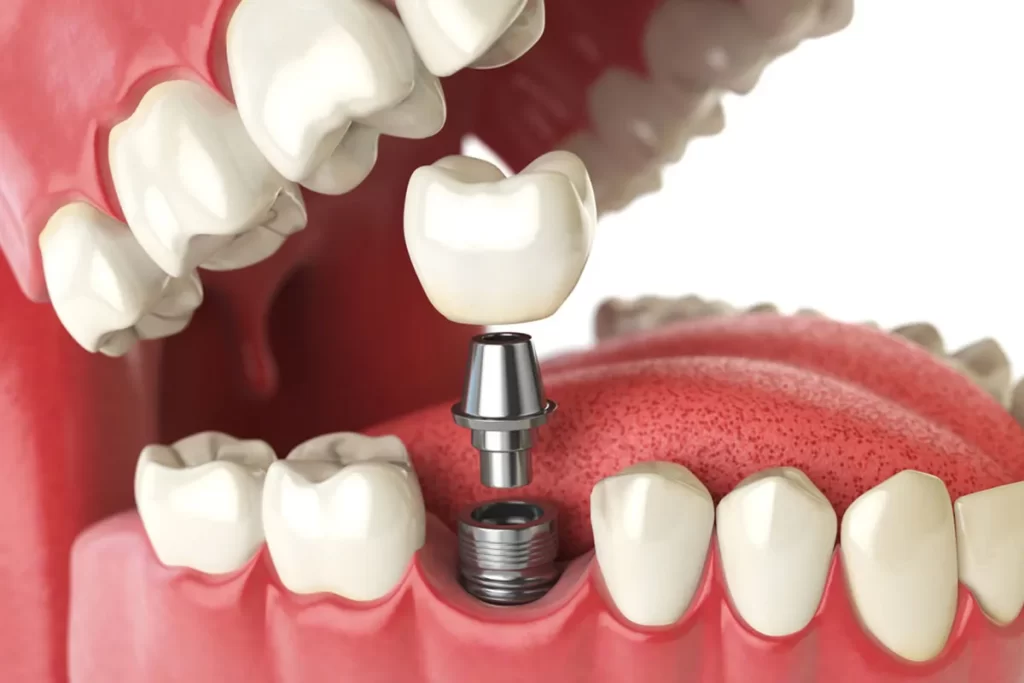Introduction:
In the pursuit of a radiant smile and optimal dental health, individuals often seek solutions ranging from dental implants. These two procedures offer distinct benefits, catering to different needs and preferences. Let’s delve into the world of teeth whitening and dental implant solutions, understanding their significance and impact on oral well-being.
Understanding Teeth Whitening
Teeth whitening, also known as teeth bleaching, is a popular cosmetic dental procedure aimed at lightening the color of teeth. It addresses stains and discoloration caused by various factors such as aging, consumption of certain foods and beverages, smoking, and poor oral hygiene.
The Process:
Teeth whitening procedures typically involve the application of bleaching agents to the teeth. This can be done in-office by a dental professional or at home using over-the-counter whitening products. In-office treatments often yield quicker and more noticeable results, while at-home kits provide convenience and affordability.
Benefits:
One of the primary advantages of teeth whitening is its ability to enhance the appearance of teeth, resulting in a brighter and more attractive smile. Beyond aesthetic benefits, teeth whitening can also boost self-confidence and improve overall oral hygiene habits as individuals become more motivated to maintain their bright smiles.
Considerations:
It’s important to note that not everyone is a suitable candidate for teeth whitening. Individuals with certain dental conditions or allergies may need to explore alternative options. Additionally, while teeth whitening is generally safe when performed under professional supervision, overuse or misuse of whitening products can lead to tooth sensitivity and gum irritation.
Exploring Dental Implant Solutions
Dental implants offer a permanent solution for replacing missing teeth and restoring oral function and aesthetics. Unlike dentures or bridges, which sit on the gums or adjacent teeth, dental implants are surgically implanted into the jawbone, providing a stable foundation for artificial teeth.
The Procedure:
The dental implant procedure typically involves several stages. Initially, the implant is placed into the jawbone during a minor surgical procedure. Over time, the implant integrates with the bone through a process called osseointegration, ensuring stability and durability. Once the implant has fused with the bone, a prosthetic tooth, known as a crown, is attached to the implant, completing the restoration.
Benefits:
Dental implants offer numerous benefits beyond traditional tooth replacement options. They look, feel, and function like natural teeth, providing improved comfort and confidence for the individual. Additionally, dental implants help preserve bone density in the jaw, preventing further deterioration and maintaining facial structure.
Considerations:
While dental implants offer significant advantages, they may not be suitable for everyone. Factors such as overall health, bone density, and gum condition may impact candidacy for the procedure. Additionally, dental implant placement requires a commitment to oral hygiene and regular dental check-ups to ensure long-term success.
Conclusion:
In the realm of modern dentistry, teeth whitening and dental implant solutions stand out as effective methods for enhancing smiles and restoring oral health. Whether seeking to brighten stained teeth or replace missing ones, individuals have access to a range of options tailored to their specific needs and preferences. By understanding the procedures, benefits, and considerations associated with teeth whitening and dental implants, individuals can make informed decisions to achieve lasting oral well-being and confidence in their smiles.











